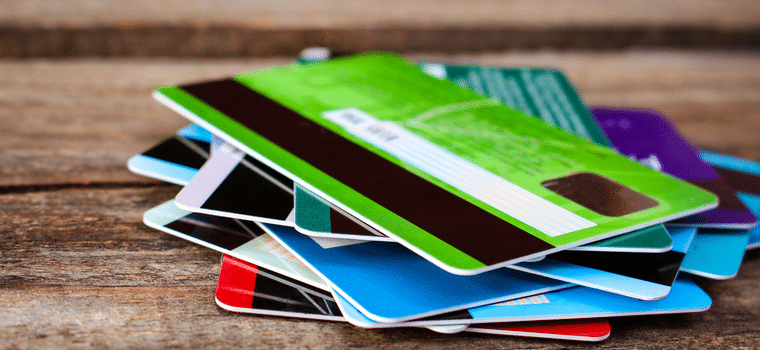Is it bad to have a lot of credit cards with zero balances? Does having a credit card but not using it hurt your credit score? These are questions that many people are asking themselves today.
The amount of outstanding debt you have is one of the main factors considered by the credit reporting bureaus in determining your credit score. In fact, it’s responsible for 35% of your credit score, so it’s something you should keep a close eye on if you want to maintain your credit standing.
But there are other factors you should also consider when weighing the pros and cons of having credit cards you don’t use.
Helping or Hurting Your Credit Score?
It’s a common myth that carrying balances on credit cards is good for your credit score. The truth is that paying your credit card balances in full each month generally is a good bet.
But what if you have credit cards you no longer use that have zero balances? Is it bad to have a credit card you never use? And should you cancel these cards and close these accounts? The quick answer is not necessarily.
Nothing happens if you don’t use a credit card for a while, and it’s better to keep unused credit card accounts with zero balances open instead of closing them for a number of reasons. For instance, keeping older cards open lengthens your credit history, which can positively impact your score. However, a lender may decide to close credit cards that are not used for a long period of time.
Keeping multiple credit cards with a zero balance may also have a positive impact on your score. While total credit utilization is an important factor when calculating your score, utilization by card is a secondary metric.
The biggest reason to keep a zero-balance card open is that closing an account reduces the total amount of credit available to you, which increases your credit utilization rate. The ratio of your outstanding credit card balances to your total credit limit is an important factor in determining your credit score. And an increase in your credit utilization rate may be a red flag to the credit reporting bureaus that you are a greater credit risk.
So, if you’re planning to apply for new credit soon, it may be smart to keep open credit cards you no longer use. However, if you have a strong credit history and high credit score, canceling zero-balance cards may not impact your score as much.
The Truth About Credit Card Interest
As previously mentioned, many people are under the impression that carrying credit card balances month to month is a good thing. But when you carry revolving credit card debt instead of paying off your balances each month, you pay interest.
At the end of January 2020, the average annual percentage rate (APR) on new credit card offers was 17.31%. The average APR is much higher for borrowers with poor credit: 25.37%.
Revolving credit card debt can become very big, very quickly — not only because of high interest rates but also due to compounding interest, which means you’re charged interest on the entire balance that hasn’t been paid, including previous months’ finance charges.
This is one way that credit card debt starts to get out of control — and one reason many experts recommend returning to a zero credit card balance each month.
Consider All the Factors
Everyone must decide for themselves whether it makes sense to have zero-balance credit cards. As you weigh the pros and cons, consider both the potential impact on your credit score and the interest expense of revolving debt.





